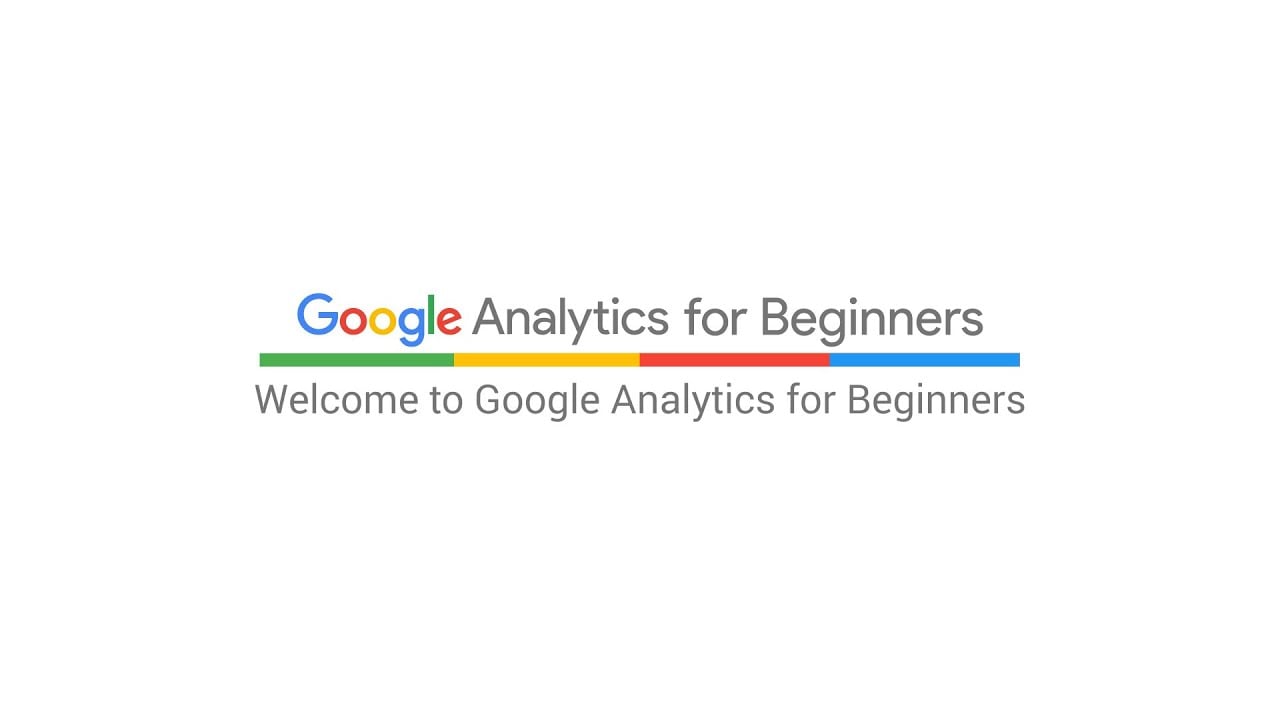- google analytics in digital marketing
- Customer-Centric Measurement In Digital Marketing
- Understanding Customer Interactions Across Websites And Apps
- Smarter Insights And Improved ROI Through Machine Learning
- Optimization Of Marketing Performance With Integrated Tools
- Access To Google Trends Datasets For Consumer Search Trends Analysis
- Safe, Secure, And Private Data Access
- Leveraging Consumer Search Data For Data-Driven Decisions
In today’s fast-paced digital world, understanding customer behavior is crucial for businesses seeking to stay ahead of the competition. With technology constantly evolving, companies need a reliable tool to measure and analyze customer interactions.
Enter GoogleAnalytics – the game-changer in digital marketing. This revolutionary tool not only provides businesses with valuable insights into customer behavior but also harnesses the power of machine learning for targeted marketing strategies.
By seamlessly integrating with Google’s advertising and publisher tools, GoogleAnalytics equips businesses with the tools they need for optimized marketing performance. Stay tuned to discover how leveraging this customer-centric measurement tool can transform your digital marketing game.
| Item | Details |
|---|---|
| Topic | Unlocking Insights: Leveraging Google Analytics in Digital Marketing |
| Category | Digital Marketing |
| Key takeaway | In today's fast-paced digital world, understanding customer behavior is crucial for businesses seeking to stay ahead of the competition. |
| Last updated | December 28, 2025 |
analytics-in-digital-marketing">google analytics in digital marketing
Google Analytics is an invaluable tool in digital marketing. It provides customer-centric measurement, allowing marketers to understand and analyze customer interactions across websites and apps.
With its machine learning capabilities, it enables smarter insights and improved return on investment (ROI). Additionally, Google Analytics seamlessly integrates with Google’s advertising and publisher tools, ensuring optimized marketing performance.
Marketers also gain access to Google Trends datasets through direct interaction with BigQuery, enabling them to analyze consumer search trends and make data-driven decisions. Importantly, Google Analytics prioritizes the security and privacy of the data, providing safe and secure access.
By leveraging consumer search data, marketers can inform their analyses and make more informed decisions. For beginners or exploration purposes, Google offers a BigQuery sandbox and a sample Looker dashboard.
Overall, with its extensive features and functionalities, Google Analytics is a valuable asset for any digital marketer.
Fresh tips added for advertisers this week.
Key Points:
- Google Analytics provides customer-centric measurement for understanding customer interactions across websites and apps in digital marketing.
- The machine learning capabilities of Google Analytics offer smarter insights and improved ROI.
- Google Analytics integrates seamlessly with Google’s advertising and publisher tools for optimized marketing performance.
- Google Analytics allows access to Google Trends datasets through direct interaction with BigQuery, enabling analysis of consumer search trends.
- The security and privacy of data are prioritized in Google Analytics, ensuring safe and secure access.
- Google offers a BigQuery sandbox and a sample Looker dashboard for beginners or exploration purposes with Google Analytics.
Sources
https://marketingplatform.google.com/about/analytics/
https://cloud.google.com/solutions/marketing-analytics/
https://blog.hubspot.com/marketing/google-analytics
https://hevodata.com/learn/digital-marketing-with-google-analytics/
Check this out:
💡 Pro Tips:
1. Utilize the “Goals” feature in Google Analytics to track specific customer actions on your website or app, such as newsletter sign-ups or purchases. This will help you measure the effectiveness of your digital marketing campaigns.
2. Take advantage of the “Audience” section in Google Analytics to gain insightful demographic information about your website visitors, such as their age, gender, and interests. This data can be used to tailor your digital marketing strategies to better target your ideal audience.
3. Implement the “E-commerce Tracking” feature in Google Analytics to track the success of your online sales. This will allow you to analyze metrics like conversion rate, average order value, and revenue, helping you optimize your digital marketing efforts to drive more sales.
4. Use UTM parameters when sharing links on social media, emails, or other digital channels. UTM parameters are tags added to the end of URLs, which can be tracked in Google Analytics. This will enable you to see which channels are driving the most traffic and conversions to your website.
5. Create custom reports and dashboards in Google Analytics to have a comprehensive view of your digital marketing performance. You can customize these reports to focus on the metrics that matter most to your business, providing you with actionable insights to continually improve your marketing strategies.
Customer-Centric Measurement In Digital Marketing
Google Analytics is a powerful tool that provides customer-centric measurement in digital marketing. It allows marketers to gain valuable insights into their target audience’s behavior, preferences, and interactions across websites and apps.
By utilizing Google Analytics, marketers can track and analyze key metrics such as page views, bounce rates, conversions, and more. This data-driven approach enables businesses to make informed decisions and optimize their marketing strategies for better results.
Understanding Customer Interactions Across Websites And Apps
One of the key advantages of Google Analytics is its ability to help marketers understand customer interactions across various websites and apps. With its tracking code implemented on a website or mobile app, Google Analytics captures valuable data on user behavior, such as the pages they visit, the actions they take, and the time they spend on each page.
This granular level of insight allows marketers to identify patterns and trends, enabling them to tailor their marketing efforts to better engage and convert their target audience.
Smarter Insights And Improved ROI Through Machine Learning
Google Analytics incorporates machine learning capabilities that provide marketers with smarter insights and improved return on investment (ROI). Through advanced algorithms, Google Analytics can analyze vast amounts of data and identify patterns that may not be easily noticeable to human analysts.
This enables marketers to uncover hidden opportunities, optimize their campaigns, and make data-driven decisions that can have a significant impact on their ROI.
Optimization Of Marketing Performance With Integrated Tools
Google Analytics seamlessly integrates with Google’s advertising and publisher tools, making it a valuable asset for optimizing marketing performance. Marketers can link their Google Analytics and Google Ads accounts, allowing them to directly measure the effectiveness of their advertising campaigns.
Additionally, the integration with Google’s publisher tools enables publishers to gain insights into their website’s performance and optimize their ad placements. These integrated tools provide a comprehensive view of marketing performance, allowing marketers to make informed decisions and drive better results.
Access To Google Trends Datasets For Consumer Search Trends Analysis
With Google Analytics, marketers also gain access to Google Trends datasets through direct interaction with BigQuery. This powerful combination allows marketers to analyze consumer search trends and leverage the data to inform their marketing strategies.
By understanding what keywords and topics are trending and popular among their target audience, marketers can develop content, campaigns, and advertisements that are more likely to resonate and drive engagement.
Safe, Secure, And Private Data Access
Data security and privacy are paramount in the digital age, and Google Analytics ensures a safe, secure, and private access to data. With robust security measures in place, including encryption and access controls, marketers can trust that their data is in good hands.
This level of security allows marketers to confidently analyze their customer data, knowing that sensitive information is protected.
Leveraging Consumer Search Data For Data-Driven Decisions
Google Analytics empowers marketers by providing access to valuable consumer search data. By leveraging this data, marketers can make data-driven decisions that are informed by actual search behavior and trends.
This enables marketers to tailor their messaging, targeting, and campaigns to effectively reach their target audience and drive desired actions. Through Google Analytics, marketers unlock the potential of consumer search data, giving them a competitive edge in the digital marketing landscape.
In conclusion, Google Analytics is an indispensable tool for any digital marketer. With its customer-centric measurement capabilities, understanding of customer interactions, machine learning insights, integration with Google’s advertising and publisher tools, access to Google Trends datasets, and commitment to data security, Google Analytics offers marketers a comprehensive solution to unlock valuable insights that drive success in digital marketing.
By leveraging the power of Google Analytics, marketers can make data-driven decisions that optimize their marketing performance and deliver exceptional results.
Self-Serve DSP Platform • Buy Traffic • Performance Marketing Tips • Programmatic Advertising • Native Ad Network











